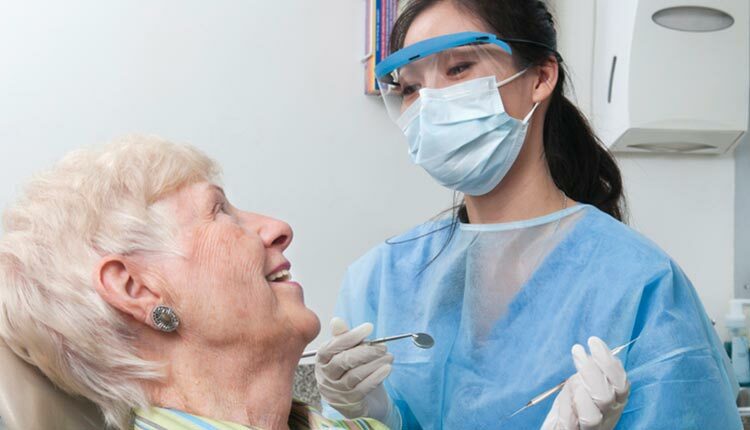 leezsnow / E+
leezsnow / E+
New Research to Investigate Effects of Aging on Oral Health
As we age, the risk for numerous health problems goes up. That includes oral health.
According to the United States Centers for Disease Control and Prevention, about 68% of adults age 65 and older experience periodontal disease, with nearly one in five losing all of their teeth. Past the age of 74, the rate of complete tooth loss is 26%. People in older age brackets are more vulnerable to the development of periodontal diseases, due to chronic diseases—such as diabetes and heart disease—and from the medications used to treat such ailments, which may result in reduced saliva flow.1
AGING NOT FOR THE FAINT OF HEART
To help address some of the issues that arise with age, the National Institutes of Health has bestowed a $1.45 million Pathway to Independence Award to a Marquette University School of Dentistry post-doctoral researcher to study the effects of aging and periodontal diseases on oral health in living organisms. Mariana Reis, DDS, will use the money to fund “Structure and Biology of the Cementum as a Function of Age and Disease.”2
Through the research, Reis hopes to identify the biochemical, structural, and mechanical features of the aging cementum. Because periodontal diseases are especially prevalent in the elderly, she also hopes to determine how age affects periodontally involved cementum, illustrating the impact of aging and periodontal diseases via a ligature-induced periodontitis in animal models.
THE TISSUE THAT CONNECTS
Cementum is the connective mineralized tissue that is integral to tooth support and attachment. It also acts as a shock absorber during chewing and covers dentin to insulate against sensitivity. It is vital to sound dental structure and oral health. But cementum can fall victim to periodontal diseases and the simple act of aging.
“Aging is an inevitable progressive series of events that effect all living organisms, says Reis. “Structural and compositional changes that occur to mineralized tissues such as cementum during aging can deteriorate their function and regeneration.”2
Reis further notes that periodontal diseases are highly prevalent in older populations, and directly affect the biology and function of the cementum. She adds, however, that the
impact of aging and periodontal diseases on cementum is unclear.
“Through this project,” says Reis, “I hope to build a foundation for understanding mineral-to-matrix interactions and their probable roles in the functionality and regeneration of mineralized tissues.”2
FOSTERING INDEPENDENCE
The Pathway to Independence program is designed to aid outstanding post-doctoral researchers in transitioning from mentored positions to independent, tenure-track or equivalent faculty positions. During the first 2 years of the award, which will span 7 years, Ana Bedrab-Russo, DDS, PhD, chair and professor of general dental sciences will serve as mentor. After that, Reis will operate independently, though she will have access to guidance from a network of experts.
According to Bedran-Russo, the project, “… has the potential to reveal uncharted areas of the structure, biology and biomechanics of the cementum as a function of age and disease and the impact of these processes on cementum regeneration.”2
HEADING TROUBLE OFF AT THE PASS
Of course, the best remedy for compromised cementum is prevention. To prevent oral health problems, periodontal diseases, and degradation of cementum, brushing, flossing, and use of interdental brushes is critical. And regular dental care is crucial—even more so as we age.

